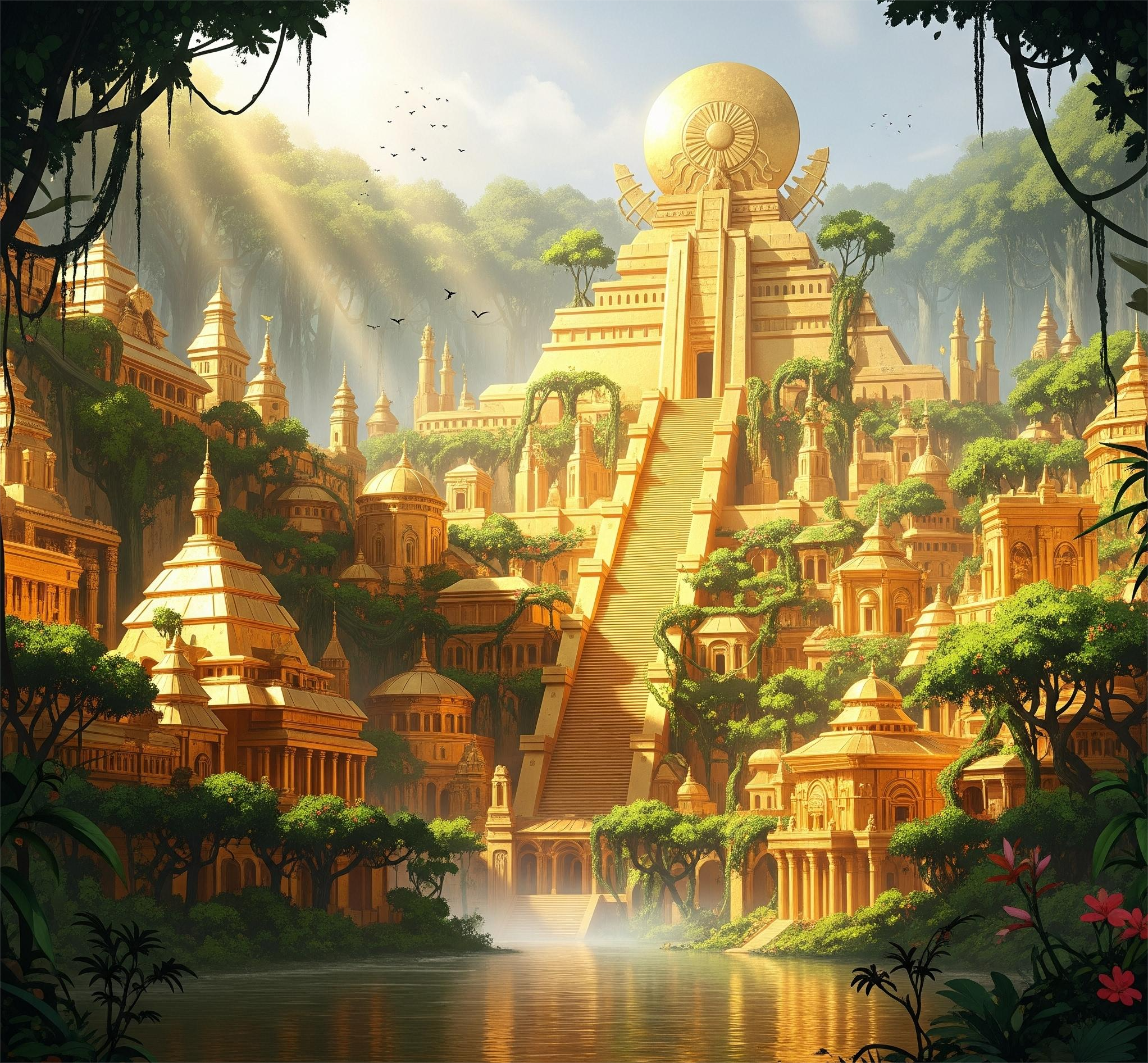Few myths have captivated the imagination—and greed—of explorers quite like El Dorado, the fabled City of Gold. Rooted in indigenous South American rituals and warped by colonial fantasy, the legend of El Dorado transformed from a gold-covered king into an entire lost city glistening with untold riches. It lured generations of conquistadors into the depths of jungles, over mountains, and across rivers, many never to return.
But what was El Dorado? And why did it become such an enduring symbol of the European thirst for wealth and conquest?
The Origins: A Gilded King, Not a City
Contrary to modern belief, El Dorado (Spanish for "The Gilded One") originally referred not to a city, but to a person.
Among the Muisca people of present-day Colombia, a royal initiation ritual took place on Lake Guatavita. The newly crowned chief would be covered in gold dust and paddle to the center of the lake, where he would offer gold and jewels to the gods by casting them into the water.
Spanish conquistadors who heard this tale in the 16th century misunderstood—or perhaps intentionally exaggerated—it. To them, a king covered in gold suggested a kingdom overflowing with it.
From Myth to Mania: Spanish Expeditions Begin
After the fall of the Inca Empire, conquistadors turned their attention northward. News of a “golden king” fired their imagination, and soon, El Dorado evolved into a mythical city or even an entire kingdom hidden in the unexplored interior of South America.
Some of the most infamous expeditions include:
Gonzalo Pizarro and Francisco de Orellana (1541–42)
Pizarro set out from Quito with 220 Spaniards and 4,000 native allies in search of El Dorado. Harsh jungle conditions decimated the expedition, and only Orellana survived—becoming the first European to navigate the full length of the Amazon River.Pedro de Ursúa and Lope de Aguirre (1560)
A tragic and violent expedition, where Aguirre eventually mutinied and declared himself "Wrath of God." His descent into madness became legendary—and symbolic of the psychological toll of the gold hunt.Sir Walter Raleigh (1595 & 1617)
Even the English were seduced. Raleigh sailed to the Orinoco River region (modern Venezuela), convinced he would find Manoa, the city at the heart of El Dorado. He published tales claiming the city was real, though he never found it—and his final expedition ended in disaster.
The Allure of Gold and Greed
Why did so many risk their lives for El Dorado?
Economic Motive: After pillaging the riches of the Aztecs and Incas, European powers were eager to repeat their success.
Imperial Competition: Spain, England, and Portugal competed to claim the next great source of wealth.
Spiritual Justification: Many justified conquest as spreading Christianity—even if it meant enslaving or exterminating native populations.
El Dorado offered more than gold. It was the promise of limitless wealth, of conquering the unknown, of rewriting one’s destiny.
The Geography of the Myth
As the story spread, the supposed location of El Dorado shifted:
Lake Guatavita (Colombia): The original ritual site. Spanish attempts to drain the lake in the 16th and 19th centuries yielded some gold artifacts—but no city.
The Andes Mountains: Some thought El Dorado lay high among the peaks.
The Amazon Rainforest: Endless, impenetrable, and deadly—perfect for hiding a city of legend.
Venezuela's Orinoco Basin: Raleigh’s target, where he believed Manoa stood on the shores of Lake Parime—a body of water that never existed.
Truth Beneath the Legend
While El Dorado itself may be fiction, the indigenous cultures that inspired the myth—like the Muisca, Inca, and others—were very real and had rich traditions of goldsmithing. Gold held symbolic and spiritual value rather than being used as currency. To Europeans, this was unimaginable—and exploitative.
Archaeological finds, such as the famous Muisca raft (a golden votive object depicting the Lake Guatavita ritual), confirm the ritualistic use of gold, but no golden cities were ever found.
El Dorado in Popular Culture
Even as a historical myth, El Dorado lives on:
Literature and film: From Voltaire’s Candide to The Road to El Dorado (2000), the legend continues to evolve.
Metaphor: "El Dorado" is now shorthand for a place of immense, often illusory, wealth or success.
Gaming and treasure hunting: From Uncharted to Indiana Jones, the myth still drives fictional quests.







